Meet the ASCEND Guiding Coalition
The ASCEND Guiding Coalition is an advisory board of technology, science, engineering, and business leaders selected to help maximize our year-round reach and impact, including the design and content of our centerpiece annual event.
From rockets and payloads to policy, administration, and advocacy, the 37 members of the 2025 ASCEND Guiding Coalition bring an accumulated wealth of experience — millions of miles and billions of dollars invested in space — to inform and inspire the ASCEND community.

Sirisha Bandla currently works as the Vice President of Government Affairs at Virgin Galactic. In this role, Sirisha oversees legislative, regulatory, and government business priorities for the company.
Previously, Sirisha served as the Associate Director for the Commercial Spaceflight Federation, an industry association of commercial spaceflight companies. At CSF, Sirisha worked on various policies with the aim to promote and enable the then emerging commercial space industry. Before CSF, she worked as an aerospace engineer designing components for advanced aircraft at L-3 Communications in Greenville, Texas. Sirisha serves on the Board of American Society for Gravitational and Space Research, American Astronautical Society, and the Future Space Leaders Foundation. She is also helps run the Matthew Isakowitz Fellowship Program, a program for undergrad and graduate students to gain access to internships, mentorship, and a network in the commercial space industry.
Sirisha has a Bachelors of Science degree in aeronautical/astronautical engineering from Purdue and holds a Masters of Business Administration from the George Washington University.

Kevin D. Bell is the senior vice president of the Engineering and Technology Group (ETG) at The Aerospace Corporation. He assumed this position on October 1, 2023. In this role, he is responsible for leading the group which comprises the corporation’s technical and engineering teams that provide support to all national security and civil space programs in the areas of space and launch vehicles, electronics and sensors, computers and software, communications and networking, and systems engineering and architecting. ETG also includes the corporate physical sciences laboratories and the corporate research portfolio.
Previously, Bell was the senior vice president of the Space Systems Group, where he was responsible for the company’s support to all launch programs, ground networks, and satellite programs overseen by the U.S. Space Force Space Systems Command.
Prior to that, Bell was the vice president of Space Program Operations; in that role, he worked directly with the Air Force, government, and industry partners to develop military satellites and to advance national security space systems. Bell oversaw five major mission areas: communications, surveillance, weather, navigation, and space superiority; assisted with the development of system requirements; supported acquisition and development; and solved technical problems to ensure successful operations of space systems.
Bell joined Aerospace in 1992 as a member of the technical staff in the Vehicle Systems Division in ETG. Previously, Bell was general manager of the Imagery Programs Division, National Systems Group, and prior to that he was general manager of ETG’s Systems Engineering Division.
Bell has also supported the Air Force, NASA, commercial ventures, Missile Defense Agency, and the National Reconnaissance Organization customers, serving as systems director of the Space and Directed Energy Technology Directorate; principal director of the Missile Defense Division, Systems and Technology Subdivision; and principal director of Advanced Research and Engineering, Advanced Technology Division, among other increasingly responsible positions within the corporation’s National Systems Group. Prior to joining Aerospace, Bell held positions in industry, academia, and at the NASA Ames Research Center.

Sandra “Sandy” Brown is vice president of Mission Solutions & Payloads (MSP) within Raytheon’s Air & Space Defense Systems (ASDS) strategic business unit. She leads a business responsible for a broad portfolio including Raytheon’s advanced space ground systems enterprise and space payloads, that provides defense, civil and commercial space solutions for domestic U.S. and international markets.
In this role Brown leads the development and deployment of innovative space solutions focused on strategic and tactical space command and control, space protection, tracking and object identification, missile warning and defense, cyber and software solutions, and earth observation and scientific systems.
Since joining the company in 2000, Brown has held numerous positions in program management, engineering, business transformation, and operations management. She led RGNext, a majority-owned joint venture with General Dynamics Information Technology, and has served on the Corporate
Program Management Excellence team. She was also director of the Combat Training Center and Support Mission program area of the Global Training & Logistics (GTL) Mission area within the former Raytheon Intelligence, Information and Services (IIS) business.
Brown was recognized in 2015 with the Raytheon Corporate Program Leadership Award and the IIS Leadership Award. For her career contributions, she was also formally recognized by the White House, First Lady Dr. Jill Biden and former First Lady Michelle Obama, as part of the Joining Forces initiative.

Steve “Bucky” Butow is the Director of the Space Portfolio at the Defense Innovation Unit (DIU). He is a plank-owner & co-founder of the Defense Innovation Unit. As a researcher with the SETI Institute, he worked on instrument concepts for Mars surface soil analysis at NASA Ames Research Center, and was Co-PI on two NASA / USAF airborne science campaigns. He was recognized for outstanding achievement by the Space Science Division in 1999, and received an Ames Honor Award as a member of the first astrobiology mission in 2000. He holds a B.A. in Physics & Astronomy from San Jose State University, M.S. in Air & Space Strategic Studies from the University of Maryland. In his military (reserve) status, he is a brigadier general and commander of the California Air National Guard with more than 3,500 flying hours in Air Force aircraft.

Carissa Bryce Christensen is the Chief Executive Officer and founder of BryceTech, LLC, based in Alexandria, VA. She previously co-founded defense contractor The Tauri Group, acquired by LMI in 2019, and quantum computing software firm QxBranch, acquired by Rigetti Computing in 2019. She is an active tech investor and has served on several early-stage boards.
Ms. Christensen is an internationally recognized expert on the satellite and space industry, known for rigorous analysis and innovative, data-driven strategy. She is a Senior Advisor to the annual US Space Force Schriever Wargame. She serves on the Senior Advisory Council of the Aerospace Corporation Center for Space Policy and Strategy, serves on the World Economic Forum Global Future Council on Space, chairs the US board of the UN-affiliated Space Generation Advisory Council, and was appointed as a member of the Federal Aviation Administration’s Commercial Space Transportation Advisory Committee. She is a founding member of the Future Space Leaders Foundation and chairs its Advisory Board. Ms. Christensen previously served on the National Research Council Space Technology Industry-Government-University Roundtable, which advises NASA, and served on the Space Committee of the Defense Innovation Board.
Ms. Christensen is a Harvard Business School Entrepreneur-in-Residence. She guest lectures at universities including Harvard, the University of Pennsylvania, and the Eisenhower School for National Security and Resource Strategy. She has testified before Congress and Parliament committees on the space industry. She publishes extensively, is often cited by major media outlets, and has appeared in commercial space documentaries by The Financial Times, Bloomberg and HBO.
Ms. Christensen is a graduate of Harvard University’s Kennedy School, where she specialized in science and technology policy. She attended the London School of Economics and was a Douglass Scholar at Rutgers University. She is a Fellow of the American Institute of Aeronautics and Astronautics and of the Royal Aeronautical Society. Ms. Christensen was named 2023 Executive of the Year (Up to $75M) at the Greater Washington GovCon Awards.
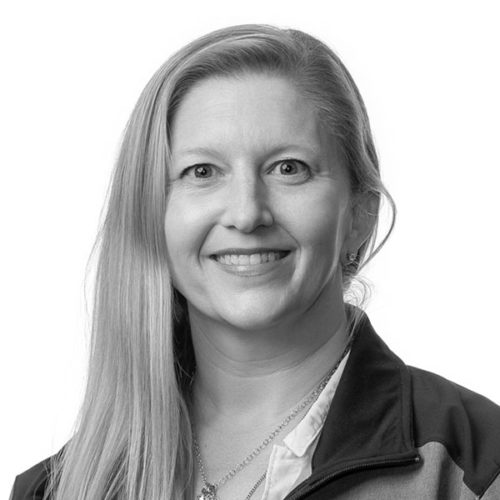
Laura Crabtree was one of the Crew Operations & Resource Engineers (CORE) who helped put the United States back in the human Space Flight business. Among the initial members of the operations team for SpaceX’s Dragon spacecraft, she was also on console for the first Dragon mission in 2010, the first mission to the International Space Station (ISS) in 2012, and part of the commercial crew contract over the next decade—including the mission that delivered astronauts to the ISS in 2020. During that mission, Laura was the lead trainer for the crew and one of the CORE operators who communicated to and advocated for the crew during free flight. Laura’s proudest moments were receiving a call on her personal cell phone from Astronaut Doug Hurley when he was orbiting above the earth, and operating both the first commercial cargo and crew vehicles in free flight.
During her time at SpaceX, Laura was also a part of the early F9 Recovery, Dragon Recovery, and Dragon operations teams. She was responsible for crew and ground operator flight training, flight software test, CONOPs development and simulator design. Over the years, Laura authored, tested and executed hundreds of procedures for both the ground operations teams and the crew onboard Dragon.
Laura began her career at Northrop Grumman working various programs for DARPA and other DoD customers, including a 4 year operations assignment in North Yorkshire, England. She has a Bachelors in Astronautical Engineering and a Masters in Systems Architecture, both from the University of Southern California.
Laura wants to continue to revolutionize the space industry, beginning with operational tools. She has seen how great tools and training can transform an operation, and she is excited to be able to develop tools for space and aviation companies. She’s thrilled to be in another startup environment after eleven years at SpaceX.
Laura is the proud mom of two young boys, and feels passionate about women in STEM. She encourages children to chase their dreams in science, technology, the arts, or any other passion. She also enjoys long runs with her dog and cycling up the biggest hills she can find.

Kara Cunzeman is the director of strategic foresight within the Center for Space Policy and Strategy at The Aerospace Corporation. Cunzeman championed and founded the Strategic Foresight directorate at Aerospace and serves as its first director. In her role, Cunzeman leads an “A” team of incredible thinkers who are focused on cultivating a formalized approach to futures thinking through the discipline of strategic foresight, helping the enterprise adequately prepare its organizations and capabilities to proactively shape the future through innovative approaches across strategy, acquisition, science, technology portfolio management, policy, and operations. Cunzeman is an experienced professional who is a recognized, trusted advisor and transformative thought leader for executive leadership across government, academia, and industry. Cunzeman is a declared “mad scientist” by the U.S. Army Training and Doctrine Command (TRADOC), a member of the Federal Foresight Community of Interest, and a frequent guest speaker.
Cunzeman joined Aerospace in 2015, and served five years with Aerospace’s Project West Wing, providing thought leadership and strategic insight into critical issues for the nation spanning global space advancements, technology development, and threat futures to a broad range of customers across Department of Defense, intelligence community, and civil sectors.
Prior to working at Aerospace, Cunzeman held roles in space systems engineering, vehicle operations, and space sensor development at Raytheon and General Atomics. Before that, she was at Packer Engineering, where her contributions were key to winning Phase II funding via a NASA Small Business in Innovation Research (SBIR) award for extracting oxygen from lunar soil.

Ariel Ekblaw is the founder and CEO of Aurelia Institute, where she strives to bring humanity’s space exploration future to life. Through architecture R&D, education and outreach, and policy thought leadership, she is building a remarkable team and a novel FRO (Focused Research Organization) to expand humanity’s horizons and scale life in space.
Aurelia Institute is spun out of the MIT Space Exploration Initiative (SEI)—a team of over 50 graduate students, staff, and faculty actively prototyping the artifacts of our sci-fi space future—of which Ariel is also the founder and Director. Ariel drives SEI’s space-related research across science, engineering, art, and design, and leads an annually recurring cadence of parabolic flights, sub-orbital launches, and missions to the International Space Station.
Ariel is the author/editor of Into the Anthropocosmos: A Whole Space Catalog from the MIT Space Exploration Initiative (MIT Press 2021). She serves on the NASA Lunar Surface Innovation Consortium (LSIC) Executive Committee, guiding and shaping the coming decade of burgeoning activity on the moon. Ariel has had the rare honor and pleasure of working directly on space hardware that now operates on the surface of Mars and is leading MIT’s To the Moon To Stay mission.
Ariel graduated with a B.S. in Physics, Mathematics and Philosophy from Yale University and designed a novel space architecture habitat for her MIT PhD in autonomously self-assembling space structures. Her research work and the lab she leads builds towards future habitats and space stations in orbit around the Earth, Moon, and Mars. Ariel and her work have been featured in WIRED, MIT Technology Review, Harvard Business Review, the Wall Street Journal, the BBC, CNN, NPR, PRI’s Science Friday, IEEE and AIAA proceedings, and more.
Equally comfortable in a boardroom, a machine shop, or free-floating in the middle of a zero-gravity parabola, Ariel drives innovation, entrepreneurship, and research at the forefront of space exploration. As the daughter of two US Air Force Pilots, Ariel developed a deep commitment to the service model of leadership at a young age, and followed in her mother’s glass-ceiling breaking footsteps (Maj. Ekblaw was one of the country’s first female instructor pilots). With a deep family history of extreme environment exploration, including the Ekblaw Glacier in the Arctic and Mt. Ekblaw in Antarctica named after her great-grandfather, Ariel looks forward to galvanizing exploration at the vanguard of humanity’s horizons—from Low Earth Orbit to other celestial bodies.

Debra Facktor is the Head of U.S. Space Systems for Airbus U.S. Space & Defense, Inc. She leads the Airbus U.S. Space line of business consisting of National Security Space (small satellites) and Space Exploration. Debra serves on the board of Airbus OneWeb Satellites, a joint venture between Airbus and OneWeb operating a high-volume, high-speed satellite manufacturing facility in Florida.
Prior to joining Airbus U.S., Debra was Vice President and General Manager of Strategic Operations for Ball Aerospace, leading the company’s Washington D.C. operations, strategic development, and marketing and communications. Her extensive business experience includes serving as President and Owner of AirLaunch LLC, and as Vice President of Business Development and Strategic Planning for Kistler Aerospace Corporation. She also served as an industry professor at Steven Institute of Technology School of Systems and Enterprises and as Director of Strategic Programs for the Systems Engineering Research Center (SERC). Earlier in her career, Debra was Chief of Moscow Operations for ANSER’s Center for International Aerospace Cooperation.
Debra is actively engaged as an advisor and mentor in the aerospace community and is a fellow of the American Institute of Aeronautics and Astronautics (AIAA). She sits on the University of Michigan Aerospace Engineering Industrial Advisory Board and is Chair of SSPI-WISE (Space & Satellite Professionals International – Women in Space Engagement), former chair of the Board of Women in Aerospace (WIA), and former treasurer of the Future Space Leaders Foundation. She is also a fellow of the American Astronautical Society (AAS), an academician vof the International Academy of Astronautics (IAA), and a member of Chief.
Debra received her bachelor’s and master’s degrees in aerospace engineering from the University of Michigan and is an alumna of the International Space University summer session program in Strasbourg, France.

As the Associate Administrator (AA) for the Science Mission Directorate, Dr. Nicola Fox directs ~100 NASA missions to explore the secrets of the universe–missions that use the view from space to assess questions as practical as hurricane formation, as enticing as the prospect of lunar resources, as amazing as behavior in weightlessness, and as profound as the origin of the universe. She is responsible for fostering an inclusive, welcoming atmosphere and supporting a diverse team of space scientists and engineers around the country. As the AA, Dr. Fox creates a balanced portfolio of carefully chosen missions and research goals to enable a deep scientific understanding of Earth, other planets, the Sun, and the universe. These efforts lay the intellectual foundation for the robotic and human expeditions of the future, while meeting today’s needs for scientific information to address national concerns.
Dr. Fox joined NASA in 2018 as SMD’s Director of the Heliophysics Division, where she led a world-class team in understanding Earth’s most important and life-sustaining star. She oversaw NASA’s work to study key space phenomena and improve situational awareness of the very space our astronauts, satellites, and robotic missions travel through as they explore the solar system and beyond. Her portfolio also included NASA’s robust space weather research to help the U.S. government better predict space weather, which can interfere with radio communications, affect GPS accuracy, and even–when extreme–affect electrical grids on the ground.
Dr. Fox has authored numerous scientific articles and papers, in addition to delivering science presentations worldwide. She is known for her keen ability to make science accessible to a broad range of audiences, as well as her stellar leadership, creating a sense of purpose and belonging in her teams. In 2021 she was awarded the American Astronautical Society’s Carl Sagan Memorial Award for her demonstrated leadership in the field of heliophysics. In 2020 she was awarded NASA’s Outstanding Leadership Medal.
Prior to August 2018, Dr. Fox worked at the Applied Physics Lab at the Johns Hopkins University, where she was the chief scientist for heliophysics, as well as the project scientist for NASA’s Parker Solar Probe–humanity’s first mission to a star. Dr. Fox’s extensive project, program, and supervisory experience included serving as the Deputy Project Scientist for the Van Allen Probes and the operations scientist for the International Solar Terrestrial Physics program.
Dr. Fox graduated from The Imperial College of Science, Technology and Medicine in London with a B.S. in Physics. She received an M.S. in Telematics and Satellite Communications from the University of Surrey. She then returned to Imperial College to complete a Ph.D. in Space and Atmospheric Physics.
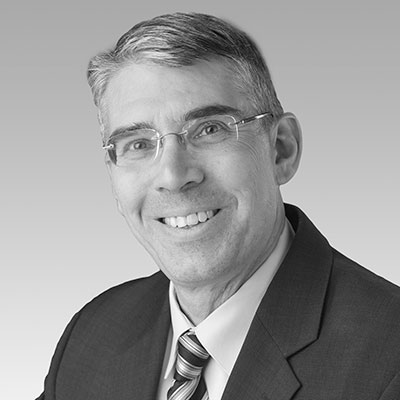
Dr. Mike Gazarik Mike Gazarik has over 30 years of experience in the design, development, and deployment of spaceflight systems. Currently he serves as the Faculty Director (Interim) of the Engineering Management Program for the College of Engineering and Applied Science at the University of Colorado in Boulder. He is also a part-time Staff Member at the Johns Hopkins Applied Physics Laboratory in Laurel, MD. He led the creation of the Space Technology Mission Directorate at NASA headquarters and served as the first Associate Administrator championing NASA’s rapid
development and incorporation of transformative technologies that enable the Agency’s missions and address the Nation’s aerospace community’s most difficult challenges. Joining Ball Aerospace in 2015, Mike served over 8 years as the Vice President of Engineering providing overall strategic and operational leadership of engineering, program execution, and technology. He led the organization through an accelerated growth period doubling the size of the organization and company in five years.
Earlier in his career, Gazarik served as the acting director of the Engineering Directorate at NASA’s Langley Research Center and led programs developing an infrared camera for on-orbit shuttle inspections and entry, descent and landing instrumentation for the Curiosity and Perseverance mars missions. Prior to joining NASA, Gazarik served as project manager for the Geosynchronous Imaging Fourier Transform Spectrometer project at the Massachusetts Institute of Technology’s Lincoln Laboratory. Gazarik also worked in the private sector on software and firmware development for commercial and government applications including telecommunications and signal processing.
Gazarik understands that diverse teams develop better solutions. Under his leadership, engineering at Ball Aerospace saw a marked increase in diversity at all levels of the organization. He served as an executive sponsor for the LGBTA and Latinx Ball Resource Networks and is a member of the Society of Women Engineers.
Gazarik earned a B.S. in Electrical Engineering from the University of Pittsburgh in 1987 and was a General Motors Scholar. He earned an M.S. in 1989 and a Ph.D. in 1997, both in electrical engineering, from the Georgia Institute of Technology. He is a Fellow of the AIAA and former Chair of the AIAA Corporate Strategic Committee. He is a member of the Engineering Advisory Board for the University of Colorado’s Engineering College and the Engineering Management Program. Gazarik is a board member for the American Astronautical Society (AAS) and the Space Sciences Institute and formerly for Astroscale U.S., and Astrobotic Technology Inc. He also serves on the NASA Advisory Committee for Technology and Innovation and supported the Department of Defense Study on STEM and the Defense Industrial Base. Gazarik has received numerous awards, including NASA’s Outstanding Leadership Medal, a Silver Snoopy Award, one of NASA’s highest honors, received the 2023 AIAA Rocky Mountain Section Educator of the Year award, selected as the 2023 Engineering Manager of the Year by the American Society of Engineering Management, and was selected as a Distinguished Alumni from the University of Pittsburgh’s Swanson School of Engineering in 2018. He was a leader in Boy Scouts of America, coached and refereed youth lacrosse, and led the development of lacrosse programs in the Hampton Roads area.
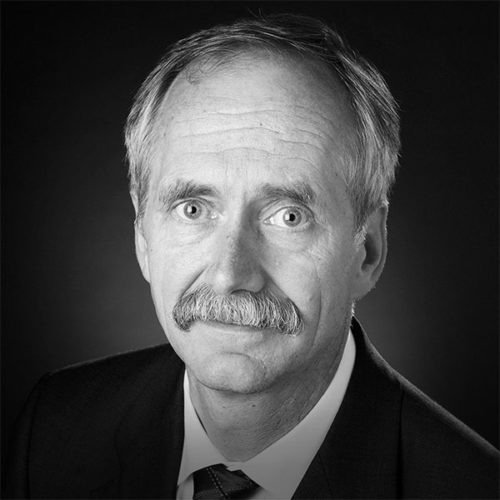
William H. Gerstenmaier is Vice President for Build and Flight Reliability at SpaceX.
Previously, he served as special advisor to NASA’s deputy administrator, appointed to the position in July 2019.
Previously, Gerstenmaier had been the associate administrator for the Human Exploration and Operations Mission Directorate at NASA Headquarters in Washington. In this position, Gerstenmaier provided strategic direction for all aspects of NASA’s human exploration of space and cross-agency space support functions of space communications and space launch vehicles. He provided programmatic direction for the operation and utilization of the International Space Station and its crew; development of the Gateway, Space Launch System and Orion spacecraft; and was providing strategic guidance and direction for the commercial crew and cargo programs.
Gerstenmaier began his NASA career in 1977 at the then Lewis Research Center in Cleveland, performing aeronautical research. He was involved with the wind tunnel tests that were used to develop the calibration curves for the air data probes used during entry on the Space Shuttle.
Beginning in 1988, Gerstenmaier headed the Orbital Maneuvering Vehicle (OMV) Operations Office, Systems Division at the Johnson Space Center. He was responsible for all aspects of OMV operations at Johnson, including development of a ground control center and training facility for OMV, operations support to vehicle development, and personnel and procedures development to support OMV operations. Subsequently he headed the Space Shuttle/Space Station Freedom Assembly Operations Office, Operations Division. He was responsible for resolving technical assembly issues and developing assembly strategies.
Gerstenmaier also served as Shuttle/Mir Program operations manager. In this role, he was the primary interface to the Russian Space Agency for operational issues, negotiating all protocols used in support of operations during the Shuttle/Mir missions. In addition, he supported NASA 2 operations in Russia, from January through September 1996 including responsibility for daily activities, as well as the health and safety of the NASA crewmember on space station Mir. He scheduled science activities, public affairs activities, monitored Mir systems, and communicated with the NASA astronaut on Mir.
In 1998, Gerstenmaier was named manager, Space Shuttle Program Integration, responsible for the overall management, integration, and operations of the Space Shuttle Program. This included development and operations of all Space Shuttle elements, including the orbiter, external tank, solid rocket boosters, and Space Shuttle main engines, as well as the facilities required to support ground processing and flight operations.
In December 2000, Gerstenmaier was named deputy manager, ISS Program, and two years later became manager. He was responsible for the day-to-day management, development, integration, and operation of the space station. This included the design, manufacturing, testing, and delivery of complex space flight hardware and software, and for its integration with the elements from international partners into a fully functional and operating space station.
Named associate administrator for the Space Operations Directorate in 2005, Gerstenmaier directed the safe completion of the last 21 Space Shuttle missions that witnessed assembly completion of the International Space Station. During this time, he provided programmatic direction for the integration and operation of the ISS, space communications, and space launch vehicles.
Gerstenmaier received a Bachelor of Science in aeronautical engineering from Purdue University in 1977 and a Master of Science degree in mechanical engineering from the University of Toledo in 1981. He completed course work early in his career for a doctorate in dynamics and control with emphasis in propulsion at Purdue University, and in spring 2019, he will receive an honorary doctorate from his alma mater.
For his technical contributions and leadership in national and international human spaceflight programs, Gerstenmaier was elected into the 2018 class of the National Academy of Engineering.
Gerstenmaier is the recipient of numerous awards, including three NASA Certificates of Commendation, two NASA Exceptional Service Medals, a Senior NASA Outstanding Leadership Medal, the Meritorious Executive Presidential Rank Award, and Distinguish Executive Presidential Rank Award. He also was honored with an Outstanding Aerospace Engineer Award from Purdue University. Additionally, he was twice honored by Aviation Week and Space Technology for outstanding achievement in the field of space. His other awards include: the AIAA International Cooperation Award; the National Space Club Astronautics Engineer Award; National Space Club Von Braun Award; the Federation of Galaxy Explorers Space Leadership Award; AIAA International Award; the AIAA Fellow; Purdue University Distinguished Alumni Award; and honored at Purdue as an Old Master in the Old Masters Program; recipient of the Rotary National Award for Space Achievement’s National Space Trophy; Space Transportation Leadership Award; the AIAA von Braun Award for Excellence in Space Program Management; and the AIAA von Karman Lectureship in Astronautics.
He is married to the former Marsha Ann Johnson. They have two children.

Kristin Houston is the President of the Space Propulsion & Power Systems sector within the Aerojet Rocketdyne segment of L3Harris Technologies. In this role, Houston is responsible for business strategy, financial performance and successful execution and growth of the sector’s core capabilities that span launch propulsion, in-space propulsion and power systems.
Prior to her current role, Houston served as the President of the Electro Optical sector within the Integrated Mission Systems segment. In this role, she led a diverse, $1.5B portfolio across multiple divisions and sites. Houston led a 4,500-person team to work effectively with customers to design and manufacture high value, industry-leading Electro Optical/Infrared products, Space Avionics and Defense Electronic solutions across air, land, sea and space.
Prior to joining L3Harris in 2021, Houston spent 16 years at Boeing and held positions of increasing responsibility in engineering and program management, including Vice President & Chief Engineer for Vertical Lift; Vice President & Program Manager, Tiltrotor programs; Director, International Apache programs; and Program Manager, V-22 programs.
Houston holds a Bachelor of Science degree in chemical engineering from the University of Pennsylvania and an Executive MBA from Villanova University with Beta Gamma Sigma honors.
Passionate about supporting initiatives that promote workplace diversity and inclusion, Houston currently serves as the Executive Sponsor for L3Harris’ Women Who Strive for Empowering, Enhancing, and Encouraging other Women (WE3) employee resource group.
Houston is the L3Harris Executive Champion for Villanova University, leading annual university recruiting efforts.
Houston serves as a board member for the Marine Corps Heritage Foundation. The Philadelphia Business Journal named Houston to its 40 Under 40 Class of 2018. She is also an avid runner, cyclist and triathlete.
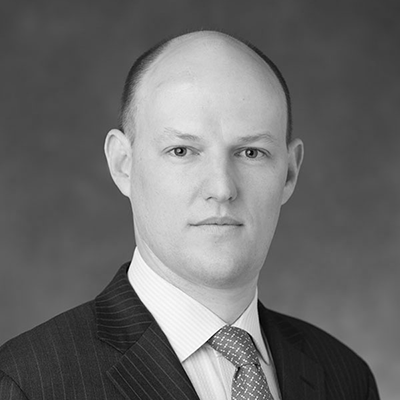
Phillip (Phil) Ingle is a Managing Director in Morgan Stanley’s Investment Banking Division. He joined Morgan Stanley in 2002 as an Analyst in the firm’s Melbourne, Australia, office. In 2004, he relocated to the New York office where he joined the Global Industrials Group. Phil specializes in the coverage of Aerospace & Defense, General Industrial and Security companies and has worked on a variety of M&A and capital markets transactions for clients across these industries.
Notable space-related transactions include the sale of Ball Aerospace to BAE Systems, the IPO of MDA, the SPAC merger of Rocket Lab with Vector Acquisition Corp, Harris Corporation’s acquisition of Exelis and its merger-of-equals with L3 Technologies, and debt and equity financings for several commercial and government-customer focused space companies including Virgin Galactic, Maxar and Aerojet Rocketdyne.
Phil graduated from the University of Melbourne with a Bachelor of Commerce (Hons) and a Bachelor of Laws (Hons). During and after his five years at university, he served as an Infantry Officer in the Australian Army Reserve. Phil currently resides in Brooklyn, NY, with his wife Laura and their four daughters.

Updated bio coming soon.

Joe Landon is a space industry entrepreneur and senior executive, currently Co-Founder and President of Rendezvous Robotics, a new venture pioneering modular, autonomous systems that transform how spacecraft are built and assembled in orbit.
Previously, Joe served as CEO of Crescent Space, a Lockheed Martin subsidiary focused on lunar infrastructure, and as Vice President of Advanced Programs Development at Lockheed Martin Space, where he led strategy, business development, and R&D for the company’s Commercial Civil Space business. He was also CFO of Planetary Resources, a bold space venture that helped define the early era of commercial space entrepreneurship through its pursuit of asteroid mining.
Joe is an Associate Fellow of AIAA and a member of the ASCEND Guiding Coalition. Joe holds an undergraduate degree in Engineering Physics from Embry-Riddle Aeronautical University, a master’s degree in Aerospace Engineering from the University of Southern California and an MBA from Harvard Business School.

Emma Louden is an American astrophysicist, strategist, and speaker.
Raised in Park City, UT, she spent many nights outside looking up at the Milky Way through the crisp and clear mountain air. After falling in love with the NASA rovers Spirit and Opportunity, Emma’s astrophysics pathway took off quickly. Since then, Emma has attended the Summer Science Program, graduated Magna Cum Laude from Princeton University, and been selected as a Brooke Owens Fellow and a Quad Fellow. As an astrophysics Ph.D. candidate at Yale University, Emma studies the geometry of exoplanetary systems. Emma uses the thinking spurred by this inquiry to help humanity develop a consciousness that puts the Earth in context and advances space exploration for the common good.
Emma is also a space strategy analyst and EarthDNA Ambassador. She co-founded the Ask-A-Brookie Mentorship program and serves on the American Astronomical Society Committee on Astronomy and Public Policy. Emma is deeply committed to sharing her passion for astronomy to spark curiosity and excitement in future scientists, especially minorities in STEM. She serves as a Young Professional Mentor for the Zed Factor Fellowship, a mentor for the Space Prize, and a lead for the SSP Connect mentorship program for alumni of the Summer Science Program. Her expertise has been featured in talks at TEDx, Yale Law School, NPR, and the Jasper Dark Sky Festival. She was named one of the STEM Reinventors of the Year for 2021 and a Payload Pioneer 30 Under 30. She also serves on the Future Space Economy Webcast Advisory Board for SATELLITE. As a sought-after speaker, Emma travels around the world as a steward of the story of the next phase of space exploration, empowering the next generation of students in STEM and connecting the public to the transformative power of space exploration.
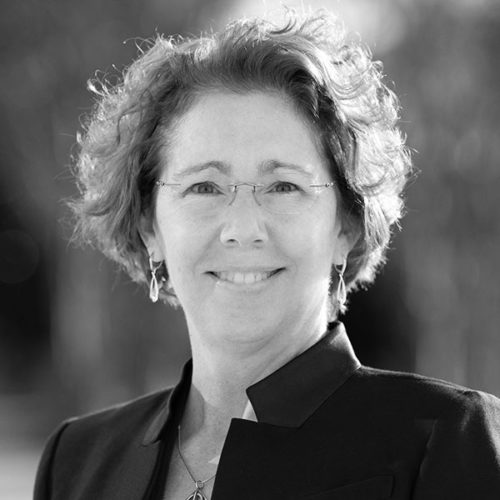
Dr. Sandra H. “Sandy” Magnus is a Principal at AstroPlanetview.
Dr. Sandra H. “Sandy” Magnus is employed by MITRE acting in the capacity of a “temporary government employee” as the Chief Engineer for the Traffic Coordination System for Space in the Office of Space Commerce in the Department of Commerce. She is also affiliated with the Georgia Institute of Technology as part time of Professor of the Practice. Dr. Magnus retired from federal service as the Deputy Director of Engineering in the Office of the Secretary of Defense for the Undersecretary of Research and Engineering. In that role she served as the “Chief Engineer” for the DoD establishing engineering policy, propagating best practices, and working to connect the engineering community across the department. Prior to joining the DoD she served as the Executive Director of the American Institute of Aeronautics and Astronautics (AIAA), the world’s largest technical society dedicated to the global aerospace profession. Selected to the NASA Astronaut Corps in April 1996, Dr. Magnus flew in space on the STS-112 shuttle mission in 2002, and on the final shuttle flight, STS-135, in 2011. In addition, she flew to the International Space Station on STS-126 in November 2008, served as flight engineer and science officer on Expedition 18, and returned home on STS-119 after four and a half months on board. Following her assignment on Station, she served at NASA Headquarters in the Exploration Systems Mission Directorate. Her last duty at NASA, after STS-135, was as the deputy chief of the Astronaut Office. Before joining NASA, Dr. Magnus worked for McDonnell Douglas Aircraft Company from 1986 to 1991, as a stealth engineer. While at McDonnell Douglas, she worked on internal research and development and on the Navy’s A-12 Attack Aircraft program, studying the effectiveness of radar signature reduction techniques.

Dr. Martin joined Astroscale U.S. in August 2019 as Executive Vice President. She brings many years of experience in space technology management, operations, and engineering to support the foundation and growth of Astroscale U.S.
Dr. Martin previously held the position of the Director, Orbital Solutions at General Atomics Electromagnetic Systems (GA-EMS). She was responsible for the management and technical performance of the engineering staff and delivery of projects, including planning and managing technical and programmatic solutions to ensure quality, business, and financial objectives were met.
Prior to joining GA-EMS, Dr. Martin was the Chief Operating Officer at Surrey Satellite Technology US, where she led the Surrey project management and engineering teams. As a member of the Surrey Satellite US Executive Team, Dr. Martin managed the bidding, negotiation, and execution of projects, and was responsible for ensuring the company’s cost-effective methods were appropriately applied to the execution of programs.
Dr. Martin transferred to Surrey Satellite US from Surrey Satellite Technology Ltd. in the United Kingdom, where she held several positions including the Head of Telecommunications and Navigation business unit, encompassing the Galileo payload programme. Prior to Surrey, Dr. Martin was a Project Manager and Scientist at QinetiQ.
Dr. Martin earned a Master of Science in astrophysics and a Doctorate in mathematics and computational sciences from the University of St. Andrews in Scotland. She loves to explore and adventure the mountains in Colorado.

Rob Meyerson is the co-founder and CEO of Interlune, a company committed to sustainable and responsible harvesting of natural resources from space to benefit humanity. Rob is an angel investor, advisor, and/or director for companies including Axiom Space, Hadrian, ABL Space, Sceye, Starfish Space, Hermeus, and others.
Prior to Interlune, Rob was the President of Blue Origin, and grew the company from its founding into a more than 1500-person organization between 2003 and 2018. Prior to joining Blue, Rob was a Senior Manager at Kistler Aerospace, and he began his career as an aerodynamicist at NASA’s Johnson Space Center (JSC).
Rob earned a B.S. degree in aerospace engineering from the University of Michigan and a master’s degree in industrial engineering from the University of Houston. He is an AIAA Fellow, a Trustee of the Museum of Flight in Seattle and a member of the University of Michigan College of Engineering Leadership Advisory Board. For accomplishments at Blue Origin, Rob and his team were awarded the Robert J. Collier trophy from the National Aeronautic Association in 2016, and Rob was awarded the Space Flight Award by the American Astronautical Society in 2017.

Updated bio coming soon.
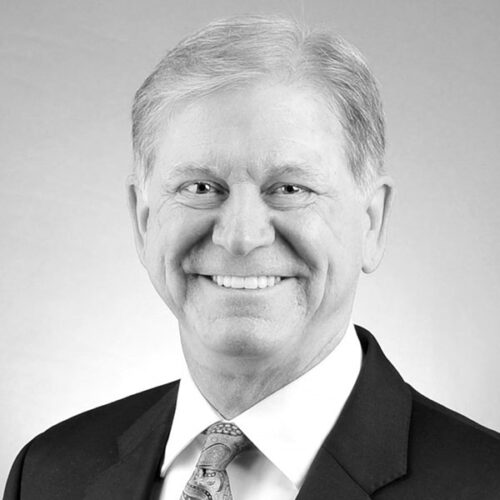
Wayne Monteith is the General Manager for NAS. He has 29 years of distinguished service in the U.S. Air Force. He retired from the Air Force in 2018 as a Brigadier General after serving as Commander of the 45th Space Wing and Director of the Eastern Range, at Patrick Air Force Base, Florida. Prior to that command, he served as the Senior Military Assistant to the Secretary of the Air Force. Wayne earned his commission in 1989 as a distinguished graduate from the University of New Mexico’s Air Force ROTC program. He has served in various special duty capacities including major command, combatant command, Headquarters Air Force, and Office of the Secretary of Defense staff positions. He earned the Master Missile Operations designation and is a Command Space Professional. Monteith’s most recent assignment was serving the Federal Aviation Administration (FAA) in Washington, D.C. as the Associate Administrator for the Office of Commercial Space Transportation.

Updated bio for Todd J. Mosher, Ph.D. coming soon.

Clay Mowry is the CEO of the American Institute of Aeronautics and Astronautics (AIAA) and a globally recognized space industry executive. Clay is a lifetime AIAA member and was elected as an AIAA Fellow in February 2024.
Before joining AIAA, Clay’s career spanned the commercial launch and satellite sectors as a senior executive for leading space companies and trade associations.
Clay currently serves as president of the International Astronautical Federation (IAF), the world’s leading space nonprofit comprising 513 member organizations from 77 countries including space agencies, companies, research organizations, societies, and museums. He will continue in this volunteer role through October 2025.
Clay has held executive leadership roles in the dynamic commercial space ecosystem, spurring innovation and achieving operational successes. Most recently, he served as an advisor to space habitation technology company Vast. Previously, he worked as chief revenue officer at Voyager Space, a satellite, national security, and space station technology company. Earlier, Clay led global sales at Blue Origin, providing commercial and government customers with safe and affordable space transportation services with the reusable New Shepard and New Glenn launch vehicles. He spent 15 years as president and chairman of Arianespace, Inc., the U.S. subsidiary of a leading global launch services company.
In the 1990s, Clay helped establish the Satellite Industry Association (SIA) and served as its founding executive director. He led the nonprofit alliance of U.S. satellite operators, manufacturers, and ground equipment suppliers, advocating for the commercial satellite industry on policy, regulatory, and legislative issues.
Clay has an unparalleled passion for empowering the next generation of aerospace explorers and leaders. He enjoys hands-on counseling opportunities, serving as an executive mentor with the Brooke Owens Fellowship. He is the founder and chairman emeritus of the Future Space Leaders Foundation, a nonprofit dedicated to the career development of young space and satellite industry professionals. He also served for over a decade on the advisory board for the Space Generation Advisory Council (SGAC).
Clay’s impact in aerospace has been recognized with honors including the Commercial Spaceflight Federation James Kuzma Community Award, the Society of Satellite Professionals International Mentor of the Year Award, and the American Astronautical Society Industry Leadership Award.
Clay earned his master‘s degree in business administration from Georgetown University and his bachelor’s degree in politics and government from Ohio Wesleyan University.
Clay is a native of Schenectady, New York. He and his wife, Kristin, reside in Chevy Chase, Maryland, where they raised their three children.

Mark Mozena is the Vice President of Government Affairs for Planet in Washington, D.C. where he leads Planet’s government relations and policy efforts with Congress and U.S. Government Agencies. Before joining Planet, Mark worked for United Launch Alliance (ULA) where he handled the civil space portfolio and led government relations with NASA, NOAA, and the FAA. Prior to ULA, Mark worked for Representative Michael Honda (D-Silicon Valley, CA) in Washington, D.C. Mark initially joined the Congressman as an AAAS Congressional Science & Technology Policy Fellow before transitioning to permanent staff. As a Senior Policy Advisor, Mark managed the Commerce, Justice, and Science (CJS) Appropriations Subcommittee for Congressman Honda who served as the Subcommittee’s Ranking Member. Before working on Capitol Hill, Mark received his Ph.D. in Astrophysics from the University of California, Santa Cruz where his research focused on galaxy evolution. As the son of a US diplomat, Mark spent much of his childhood living in South Asia and southern Africa before going to Rice University in Houston, Texas for his bachelor’s degree. Following Rice, Mark taught high school physics with Teach For America in St. Louis, Missouri before moving to California for graduate school.

Dr. Shawna Pandya is a physician, aquanaut, scientist-astronaut candidate with the International Institute for Astronautical Sciences (IIAS), skydiver, pilot-in-training, VP Immersive Medicine with Luxsonic Technologies, Associate Fellow of the Aerospace Medicine Association, and Fellow of the Explorers Club. She is Director of IIAS’ Space Medicine Group, Chief Instructor for IIAS’ Operational Space Medicine course, a host with the World Extreme Medicine’s podcast series, Primary Investigator for the Shad Canada-Blue Origin student microgravity competition, and sessional lecturer for “Technology and the Future of Medicine,” at the University of Alberta. She serves as a medical advisor to Astreas and Above: Space Development Corporation, member of the AIAA ASCEND Guiding Coalition, and as a member of the Jasper Dark Sky Festival Advisory Committee.
Dr. Pandya was on the first crew to test a commercial spacesuit in zero-gravity in 2015. She earned her aquanaut designation on the 2019 NEPTUNE (Nautical Experiments in Physiology, Technology and Underwater Exploration) mission. Her expeditions have been previously captured in the 2019 Land Rover short, ‘Another World,’ released with the Apollo 11: First Steps film, and in the 2022 FIGS Space Navy and Mauve space medicine themed campaign. She interned at ESA’s European Astronaut Center and NASA’s Johnson Space Center. Her publications include book chapters on psychological resilience in long-duration spaceflight, sexuality and reproduction in spaceflight, and space technologies that have benefitted terrestrial medicine. In 2021, she was granted an Honorary Fellowship in Extreme and Wilderness Medicine and named to the Canadian Women’s Executive Network’s Top 100 Most Powerful Women. Her work is permanently exhibited at the Ontario Science Center alongside Dr. Roberta Bondar, the first Canadian woman in space. In 2022, Dr. Pandya was named to the Explorers’ Club’s “50 Explorers Changing the World.”

Frank Pelkofer serves as the lead of the Spacecraft Assembly, Integration and Test team, leading multiple teams responsible for building, testing and delivering Maxar Space Systems’ final products to its customers. Frank has more than three decades of aerospace experience, including serving as a strategic leader charged with architecting and implementing the transformation of the Maxar Space Systems business to support a diversified portfolio of products.
Frank served with the U.S. Naval Forces for more than five years. He has a Bachelor of Science degree in electrical engineering from the Massachusetts Institute of Technology.
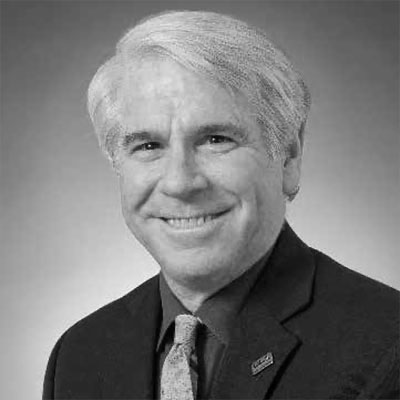
John Reed is United Launch Alliance’s Chief Rocket Scientist, and former Senior Technical Fellow for Guidance Navigation and Control. Mr. Reed manages the Technical Fellows program at ULA. He is currently focused on a wide variety of initiatives from Principal Investigator for launch vehicle reuse to enhanced navigation and trajectory planning, from defining our next generation capabilities to creating a culture of innovation and protecting our Intellectual Property. He has been working a variety of roles on launch vehicles in Denver since 1986.
Reed is a long-time member of the AAS and an Associate Fellow of the AIAA. He is the Collaboration Program Chair for ASCEND and serves as TC Liaison for the Rocky Mountain Section of AIAA. He received his Bachelor of Science in Aerospace Engineering from the University of Missouri at Rolla (now the Missouri University of Science and Technology) and his master’s degree in Computer Science from the University of Colorado at Boulder.

Pat Remias is the Vice President of Space Systems Development at Blue Origin, a private space company working to radically reduce the cost of access to space and harness its vast resources for the benefit of Earth. With over 38 years of executive, engineering, and program management experience in DoD, NASA, commercial, and international aerospace programs, Pat is a seasoned aerospace executive dedicated to innovation.
Pat joined Blue Origin in 2022 as the Vice President of Space Destinations. In 2023, Pat was appointed Vice President of Space Systems Development, where she leads the research and development group, ideating and formulating new projects and programs in Commercial LEO Development, Lunar Mobility and Habitats, In-Situ Space Resources (ISRU) and Space Nuclear areas, among others.
Prior to Blue Origin, Pat was at Sierra Space, where she was responsible for complete engineering infrastructure supporting SNC’s Sierra Space subsidiary, developing innovative solutions to the nation’s most challenging space missions in civil and national security space. She also held positions at ComTech Aeroastro Inc., Emergent Information Technologies, Inc., and Orbital Sciences Corporation.
Pat has a bachelor’s degree in aerospace and ocean engineering (AOE), Virginia Polytechnic Institute and State University (Virginia Tech) and a graduate certificate in engineering management at The Catholic University of America.
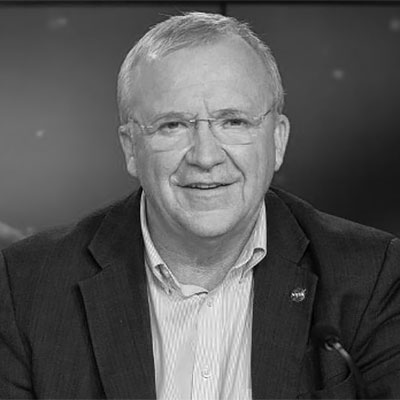
James L. (Jim) Reuter is an aerospace consultant where he advises on company and program strategies, program management and systems engineering, proposal development, and strategic planning.
Jim retired from NASA in June 2023 after a 40-year career at NASA, where he served as the associate administrator for the Space Technology Mission Directorate (STMD) at NASA Headquarters in Washington from 2018 until his retirement. Jim provided executive leadership and management of the technology programs within STMD, with an annual investment value of $1.2 billion. During Jim’s tenure as the STMD associate administrator, he created new innovative partnerships with industry and other government agencies to accelerate NASA’s technology work, with a special focus on innovating for the lunar surface. Jim also established new initiatives to foster talent within academia and the agency’s early-career workforce, all while increasing investment in technology development across the agency.”
During his four-decade career at NASA, Mr. Reuter held several leadership positions, including: STMD deputy associate administrator; senior executive for technical integration at NASA’s Marshall Space Flight Center in Huntsville, Alabama; chair of the standing review board of the Exploration Systems Division at NASA Headquarters; deputy manager of the Space Shuttle Propulsion and External Tank Offices including a leading role in managing the shuttle’s return to flight after the Columbia accident; and environmental control and life support manager for the International Space Station from formation until the ISS was permanently occupied. His NASA career began at Marshall, where he was an aerospace engineer in the Structures and Propulsion Laboratory.
Reuter’s work has been recognized many times by NASA, with awards including a 2019 Presidential Rank Award, 2019 Distinguished Service Medal, 2016 Outstanding Leadership Medal, 2013 NASA Exceptional Achievement Medal, a 2008 NASA Outstanding Leadership Medal, a 2002 NASA Exceptional Service Medal, a 1998 Silver Snoopy Award, and a 1993 Space Station Award of Merit.

Dr. Ralph A. Sandfry is the Director, Advanced Capabilities for Lockheed Martin Government Affairs and works closely with DoD, Service and Agency stakeholders to promote the development and fielding of breakthrough capabilities enabled by hypersonics and directed energy. He supports Lockheed Martin Business Areas to facilitate new business opportunities and deliver on commitments to meet customer needs.
Previously, Dr. Sandfry served as the Senior Manager of Global Research and Engagement. In this role, Dr. Sandfry fostered a global network of technology partnerships to develop and deliver breakthrough technologies and capabilities for Lockheed Martin customers including international and domestic research with universities, DoD laboratories, and small businesses.
Dr. Sandfry joined Lockheed Martin after 32 years of service in the Department of Defense (DoD) as an Air Force Officer and a DoD Civilian as the Chief of Staff of the Defense Advanced Research Projects Agency (DARPA). In this role, he led DARPA staff in support of the Director to plan and execute the Agency’s $3.4 billion dollar annual technology portfolio and create pivotal early investments for revolutionary national security technologies enabling hypersonic weapons, enhanced cybersecurity, quantum computing, secure 5G networks, and pandemic prevention.
As a career Air Force officer, Dr. Sandfry led an Air Staff Division in the Pentagon to develop and defend the annual $2.2 billion Air Force S&T program. Earlier in his career he was an Associate Professor at the U.S. Air Force Academy Department of Astronautics. He also served in a wide range of program management, systems engineering, and test leadership positions including roles with the Global Positioning System and Maverick Missile program offices.
Dr. Sandfry earned a Bachelor’s Degree in Aerospace Engineering from the University of Kansas, a Master’s Degree in Systems Engineering from AFIT, and a Doctorate in Aerospace Engineering from Virginia Tech. He also earned a Master’s in Strategic Studies from Air War College.
Dr. Sandfry is an Associate Fellow of AIAA, and his awards include the DARPA Superior Public Service Award, Air Force Legion of Merit, the Outstanding Dissertation Award for Virginia Tech, AIAA Rocky Mountain Region Engineer of the Year, and the U.S. Air Force Academy Outstanding Educator Award.

Lauren Smith is a program manager for the Satellite Servicing operating unit within the Tactical Space Systems division of Northrop Grumman Space Systems. In this role, Smith leads the portfolio of programs that advance the future of in-space refueling.
Smith has served in multiple, diverse air and space roles across her career at Northrop Grumman. She was recently the operations manager for a portfolio of 13 ground and data processing programs as well as the chair of the company’s first-ever Systems and Software Engineering Symposium. Smith was also the mechanical test engineering manager for the James Webb Space Telescope (JWST) and a member of the JWST integration and test senior staff as the lead for non-explosive actuators and deployments. As a program manager in Resilience and Rapid Prototyping, NG Next, and Advanced Unmanned Systems, Smith has executed numerous programs and contributed to several strategic captures.
Before joining Northrop Grumman, Smith worked at NASA Glenn Research Center in the Simulated Lunar Operations Lab. She also conducted her thesis work at Glenn, specializing in mechanisms and robotics. This work contributed to being named one of Aviation Week’s Twenty20s.
Smith currently serves on both the Space Foundation and Case Alumni Association board of directors, as well as the industry advisory board for her alma mater’s mechanical and aerospace engineering departments. She is a member of the AIAA ASCEND Guiding Coalition, serves on two committees for the International Astronautical Foundation, and has held numerous leadership roles for the Space Generation Advisory Council. Smith has also been recognized as a Future Space Leader Grant winner.
Smith holds a bachelor’s degree in aerospace engineering, bachelor’s and master’s degrees in mechanical engineering, and a minor in political science from Case Western Reserve University.
Northrop Grumman is a technology company, focused on global security and human discovery. Our pioneering solutions equip our customers with capabilities they need to connect, advance and protect the U.S. and its allies. Driven by a shared purpose to solve our customers’ toughest problems, our 90,000 employees define possible every day.

Updated bio coming soon.

Matthew Weinzierl
Senior Associate Dean and Chair, MBA Program; Joseph and Jacqueline Elbling Professor of Business Administration, Harvard Business School
Matt Weinzierl is Senior Associate Dean and Chair of the MBA Program at Harvard Business School and a Research Associate at the National Bureau of Economic Research. His research focuses on the optimal design of economic policy, in particular taxation. Since 2016, he has launched a set of research projects on the commercialization of the space sector and its economic implications. Prior to completing his PhD in economics at Harvard University in 2008, Professor Weinzierl served as the Staff Economist for Macroeconomics on the President’s Council of Economic Advisers and worked in the New York office of McKinsey & Company.

Vanessa E. Wyche is the director of NASA’s Johnson Space Center, home to America’s astronaut corps, Mission Control Center, International Space Station, Orion and Gateway programs and its more than 10,000 civil service and contractor employees. She is responsible for overseeing a broad range of human spaceflight activities, including development and operation of human spacecraft, commercialization of lowEarth orbit and Johnson’s role in landing the first woman and first person of color on the surface of the Moon. Wyche previously served as deputy director at Johnson, a position she held since 2018. Other key leadership positions include: assistant and acting deputy director of Johnson; director of the Exploration Integration and Science Directorate, flight manager of several missions of the retired Space Shuttle Program, executive officer in the Office of the NASA Administrator, and led additional center-level technical and program organizations.
Before joining NASA in 1989, Wyche worked for the Food and Drug Administration in Washington D.C. A native of South Carolina, Wyche earned a Bachelor of Science in Engineering and Master of Science in Bioengineering from Clemson University. In recognition of her contributions to the engineering profession she was inducted into the Thomas Green Clemson Academy of Engineers and Scientists at Clemson University in 2019. Wyche is a passionate promoter of science, technology, engineering, and math (STEM), and serves as a member of Clemson University’s College of Engineering, Computing and Applied Sciences advisory board, the University of Houston’s C. T. Bauer College of Business advisory panel, the Houston Exponential board of directors, and is a past chair of the Space Center Houston board of directors. She is the recipient of two NASA Outstanding Leadership Medals, two NASA Achievement Medals and is a current fellow of the International Women’s Forum. Wyche is married to George Wyche Jr. Esq, and has one son, George Wyche III.

Updated bio coming soon.
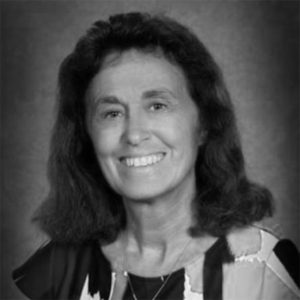
Julie Van Kleeck retired from Aerojet Rocketdyne as the vice president of the Space and Launch Propulsion Business Unit.
Julie joined Aerojet Rocketdyne in 1981 as a systems engineer. She specialized in system design and system architectures and was the Chief Systems Engineer on several first-generation missile defense systems such as the Advanced Liquid Axial Stage (ALAS) and Brilliant Pebbles. Many of the technologies pioneered on those systems are still in use in today’s missile defense systems. She was recognized at Aerojet, GenCorp, and the Strategic Defense Initiative (SDI) office for her contributions to first-generation missile defense systems.
Later, in the company’s Space business area, she played pivotal strategy, capture, and program management roles prior to moving into executive management. She worked on many satellite, spacecraft and launch vehicle propulsion programs, always working to advance the state of the art of propulsion technology while maintaining focus on mission success. Some of her key accomplishments include managing the Atlas V solid rocket motor program that developed and qualified the solid rockets that powered the Pluto New Horizons Mission; leading the Electric Propulsion Development Organization responsible for developing Advanced Extremely High Frequency (AEHF) electric propulsion that revolutionized satellite propulsion; and delivery of the nation’s next-generation human space propulsion systems such as the Orion and RS25 for SLS.
Throughout her career she worked with DoD, NASA, and commercial customers on efforts to advance launch and in-space propulsion and materials and manufacturing technologies. She is widely known in the aerospace community and has held leadership roles in numerous industry organizations, including AIAA, the Coalition for Deep Space Exploration (CDSE), Powerhouse Science Center, and the SLS/Orion industry coalition. She also has been a champion throughout her career for Science, Technology, Engineering and Mathematics (STEM) and Women in Aerospace (WIA), being a leader—both internally through Women in Network (WIN) and externally—through numerous industry groups such as WIA and the California Assembly task force on STEM, as well as working with local junior high and high schools. She is an AIAA Fellow.